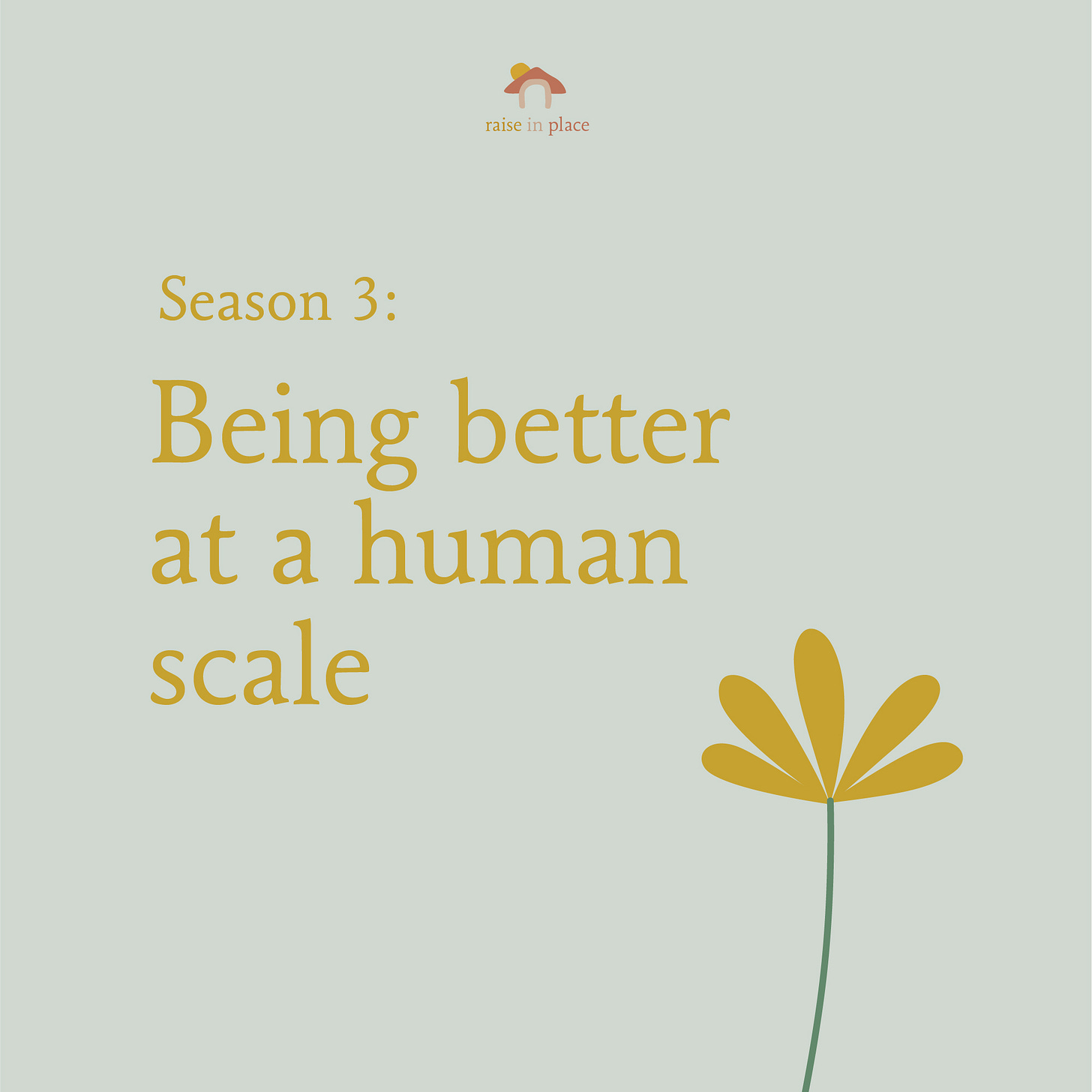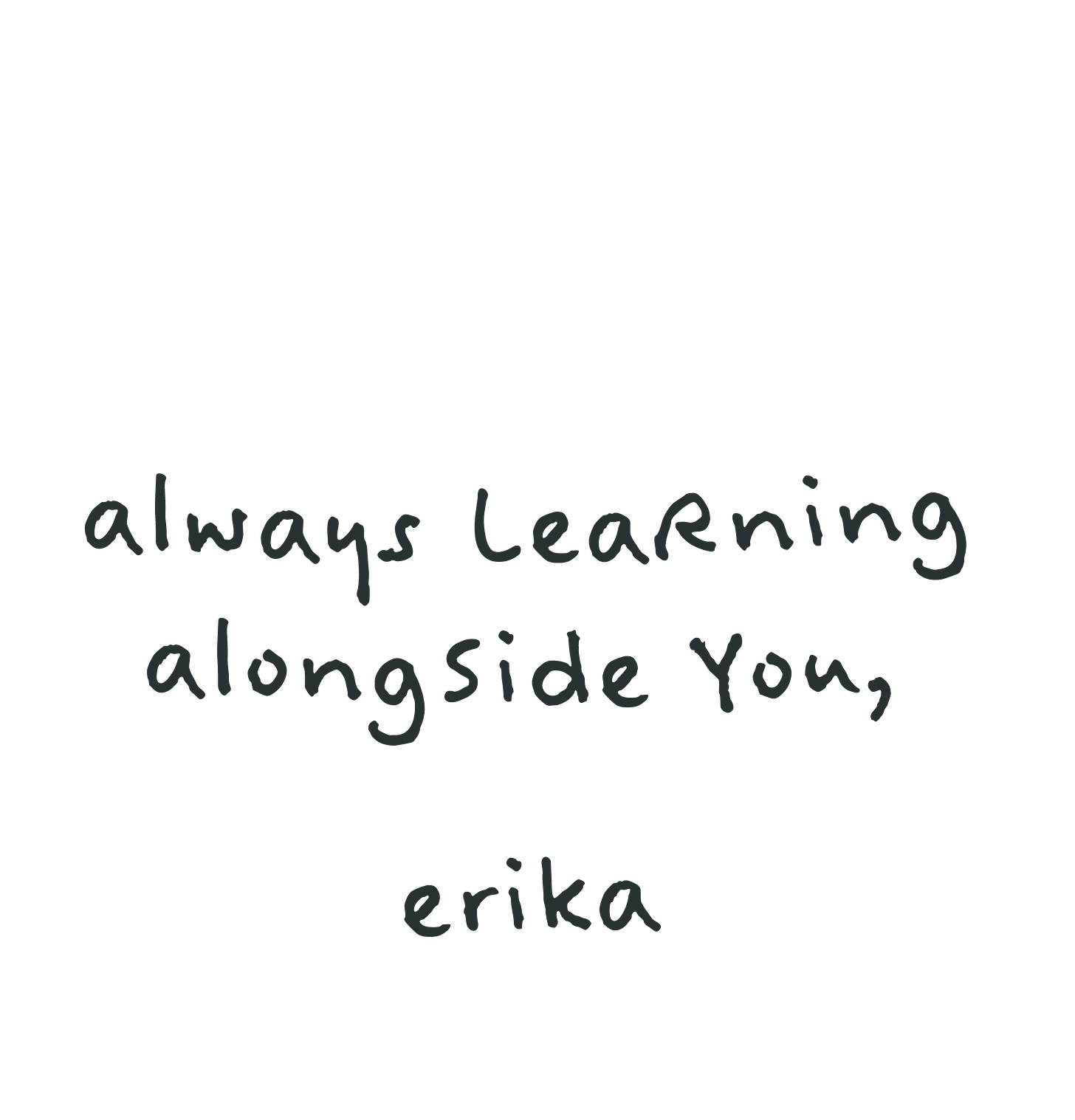Being better at a human scale
Years ago, as we watched our 6-year-old daughters play in the forest, I found myself with an uncomfortably apathetic conversation partner.
Observing these new young friends confidently navigate a wild autumn forest, planning their next challenge astride branches 10 ft high, I was inspired to chat about building character.
“They’re so confident…Seeing them climb and plan way over there. I can help but think how important it is that our children know themselves and discover their own interests and internal motivations.”
I pause.
No acknowledgement. Maybe she’s just deep in thought? Then I continue, awkwardly misreading her interest at this point.
"I have no doubt that the respect I gave to their sense of purpose, and the care I take to protect their focus, will go on to set the stage for collaborative and purposive-filled teenage years, and also go on to serve them well as adults.
“Wow…ya. That’s a lot of pressure to put on yourself,” she said.
“I guess I just don’t see how this doesn’t contribute to the future of our world and species.” I couldn’t think of anything more critical to align myself to.
I’ve gone back to her response hundreds of times since. Does it matter? Am I overstating the importance of raising good kids? Do human patterns scale from family to society? Do they prevent wars or create companies that solve tough problems and deliver mass-scale solutions?
A paper by Ugal and Orim in 2009 wrote “Whatever troubles or problems endemic in the society are also found in the family. Both structures are not only reinforcing in growth, they are also reinforcing in Natural creation and destruction. The steps for solving societal problems must therefore begin from the family that will permeate and interpenetrate the larger society through its process of socialization and interaction.”
However, Elise M. Boulding, Norwegian-born American Quaker sociologist, and author credited as a major contributor to creating the academic discipline of Peace and Conflict Studies, in a 1982 lecture proposed that “we use our experience of the family as a metaphor for society itself, thus giving us a handle on the problem of scale. If we want to make the metaphor a more sophisticated one, we can say that the family is a reflecting mirror for society, showing in microcosm the customs, mores, structures, institutions, and values of that larger society. Metaphors, however, are dangerous if carelessly used. The family is not just a mirror, for it has its own independent life. It is not a microcosm, a miniature of society, for new structures and roles with emergent properties appear at other system levels as greater numbers of actors are involved.”
Elise explains that the patterns, the relationships and interactions, at this micro-social level are incredibly complex and unrecordable as each member is changing and growing minute by minute. And yet, it’s a higher-order complexity we find manageable.
Why?
Because it is a human scale.
“The concept of the family as a small society, which calls for an authenticity and depth of relationships between family members and between family and community” Elise explains as she explores the problems of scale, come “in an era when social problems call for local initiative and nonhierarchical information flows.”
And while I am desperate for an understanding of how, at a city, national, or even worldwide level we can create a society that functions like a healthy family, there’s a comfort in knowing that minds like Elise shared in that hope.
“In the household we have a place to stand, a place to work at being human, to work at humanizing the planet, a place where love can break in.”
This week I launched Mindful Mondays, as part of our new Parenting as a Practice community at Bueno Market - a human-scale exercise in growth and love via a 2-minute mindfulness practice sent to your inbox early Monday to elevate your parenting and, I like to think Elise would agree, create a better world.
If you’d like to join the weekly practice with me, you can sign-up here >
P.S. New! 50% of subscriptions now go towards offering families in need access to cost-saving toddler self-care and toileting independence guidance. Every 10 paid subscribers allows us to offer another family free access to our new potty program, The P Word.
You can help us reach our goal of gifting 2 more families access by the end of this year by upgrading to a paid subscription or gifting someone dear an opportunity to join this growing and thoughtful community. So grateful for each and every one of you here.







